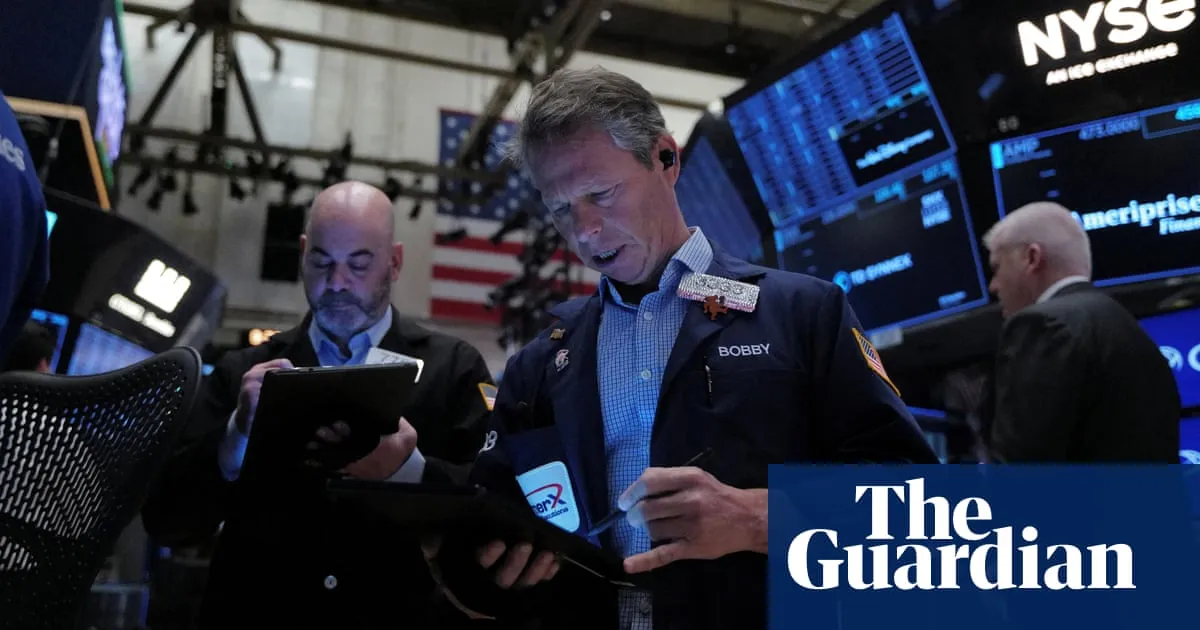
On Thursday morning, US stocks experienced a notable decline, continuing a turbulent trend following a historic rally triggered by Donald Trump’s unexpected decision to retreat from recently imposed tariffs on numerous countries. This sell-off intensified as Trump cited “transition problems” as a reason for the market's reaction, with a White House clarification revealing that tariffs on China have surged by 145% since he took office.
During a press briefing at the White House, Trump expressed confidence in the economy, stating, “We think we’re in very good shape. We think we’re doing very well. Again there will be a transition cost, transition problems, but in the end, it’s going to be a beautiful thing.” However, this optimistic outlook did little to quell the market's negative response, where the Dow Jones fell by 5%, the Nasdaq Composite dropped over 4%, and the S&P 500 declined by more than 3.5% after significant gains the previous day.
The stock market appears to be experiencing fatigue after a volatile week. Notably, stocks remained unresponsive to positive news, including the European Union's announcement to suspend 25% retaliatory tariffs against US imports and new inflation data indicating a cooling rate of 2.4% in March—developments that typically foster optimism on Wall Street.
Former US Treasury Secretary Janet Yellen criticized Trump's economic policies, labeling them the “worst self-inflicted wound” an administration has ever imposed on a “well-functioning economy.” This sentiment reflects the growing concern among financial experts regarding the implications of Trump's tariff strategies.
In a surprising announcement on Wednesday, Trump declared a 90-day pause on his tariff plan, stating that goods entering the US from most countries would now incur a 10% blanket tariff until July. Notably, Chinese exports would face significantly higher tariffs totaling 145%, comprising 125% in “reciprocal” tariffs and an additional 20% linked to China's alleged involvement in the fentanyl crisis.
Republican lawmakers quickly praised the decision to pause the tariffs, with House Speaker Mike Johnson lauding it as an example of Trump’s “Art of the Deal.” He claimed that Trump has created leverage that will benefit American workers and manufacturers.
However, not all voices in the business community echoed this sentiment. Amazon CEO Andy Jassy expressed caution, noting that third-party sellers might pass increased costs onto consumers. Meanwhile, Diane Swonk, chief economist at KPMG, highlighted that the effective tariff rate had actually increased during the pause, peaking at 30.5%—a figure that exceeds worst-case scenarios previously anticipated.
As Republicans celebrated the tariff pause, several Democratic lawmakers, including Senator Chuck Schumer, criticized the administration’s erratic approach. Schumer accused Trump of treating the economy like a game, stating, “This chaos is all a game to Donald Trump.”
Concerns about potential market manipulation have also been raised, with Senator Adam Schiff questioning whether insider trading occurred as a result of Trump's abrupt tariff shifts. Alexandria Ocasio-Cortez echoed these concerns, calling for transparency from Congress members who may have traded stocks in the aftermath of the announcement.
Democratic House Whip Katherine Clark pointed to a troubling instance where Trump advised his followers that it was “a great time to buy” on the stock market just hours before the tariff pause was announced. This led to further questions about the integrity of the administration's actions.
The recent developments surrounding Trump’s tariff policies have left investors and analysts divided, highlighting an atmosphere of uncertainty within the US stock market. As the situation unfolds, stakeholders are left to navigate the implications of these rapid policy shifts on both the economy and market stability.